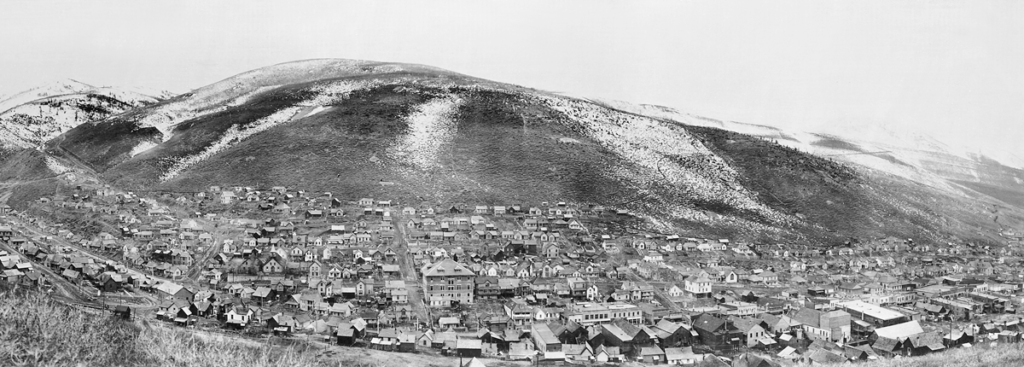As 2015 draws to a close, we recognize that, like any year, it had its ups and downs, both in our community and the world. Today, though, we look at the “way we were” exactly one hundred years ago, in 1915.
The year started off with a robbery scare. The Park Record received a letter detailing planned robberies up and down Main Street on payday in January. Some Parkites awaited the day with heightened nerves and wary precautions while others brushed it off as hoax. In the end, payday came and went with no incident.
Late winter and early spring brought innovative changes across the country, such as the first transcontinental phone call and increasingly strict labor laws, including child labor legislation and overtime amendments. Park City also got increased and better lighting when a new electric plant became operational.
The Lusitania sank on May 7th, a casualty of the ongoing World War, in which the United States was not yet fighting. As you might have read in this column a few months ago, Park City lost a resident to the disaster, an English immigrant named John Inman. Aside from noting the rise and fall of metal demands and prices influenced by “the European War,” the Record did not report much on the fighting during 1915.

Credit: Park City Historical Society and Museum, Don Baxter Collection
Law and order fluctuated in the city. Solon Spiro, of Park City mining fame, was accused of fraudulent manipulation and became involved in a lawsuit. Drunks were routinely arrested and fined. Fred Hauder was non-fatally shot by his wife over an adultery misunderstanding. And there was a heated argument between the city and ore haulers regarding the use of the newly-paved Main Street to haul ore loads and the potential damage the loads would cause.
In late October, workers at the Silver King Coalition Mine shocked the city by walking off the job, the first ever strike at that mine. The strike lasted fifteen days and kept 400 men out of work. In December, union men petitioned the state for arbitration regarding the event, but mine management refused to participate and the state was forced to decline the request.
In Salt Lake City, Joe Hill, who had briefly worked in Park City’s mines and was famous around the country for his labor activism, was sentenced to death in a highly publicized and very controversial trial. He was hanged in November.
Toward the end of the year, metal prices rose significantly for the first time in fourteen months and Park City’s mines began to increase production. A new tunnel was approved at the Silver King and the Ontario continued to be one of the highest-yielding mines in the area. By the time December 31st rolled around, the Record was reporting an upward trend they hoped would continue for years to come.
“May the New Year be one of peace, happiness, and prosperity to you and yours,” the paper wished Parkites as 1915 ended. Happy New Year from all of us here at the Park City Museum!